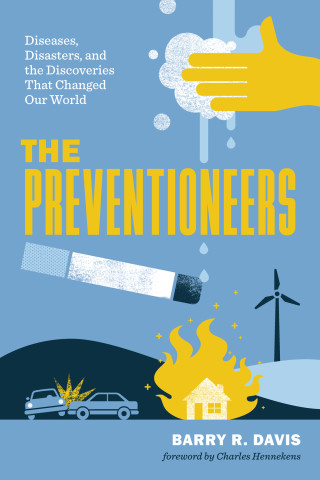
Reviews
A comprehensive look at case studies and research findings on free clinics in the United States.
... a strong literature review of the history and status of Free Clinics.
Student-run clinics and free clinics are relatively unique practices that do not have much written about them. I believe that this publication will serve an important need for those interested in learning more about these programs.
Book Details
Foreword
Preface
Chapter 1. Free Clinics Stand as a Pillar of the Health Care Safety Net: Findings from a Narrative Literature Review
Part I: Free Clinics
Chapter 2. Psychiatric Street Outreach to
Foreword
Preface
Chapter 1. Free Clinics Stand as a Pillar of the Health Care Safety Net: Findings from a Narrative Literature Review
Part I: Free Clinics
Chapter 2. Psychiatric Street Outreach to Homeless People: Fostering Relationship, Reconnection, and Recovery
Chapter 3. Nurse Practitioners in Community Health Settings Today
Chapter 4. Following the Call: How Providers Make Sense of Their Decisions to Work in Faith- Based and Secular Urban Community Health Centers
Chapter 5. The Jane Dent Home: The Rise and Fall of Homes for the Aged in Low- Income Communities
Chapter 6. Early Collaboration for Adaptation: Addressing Depression in Low- Income New Mothers
Chapter 7. Neighborhood Clinics: An Academic Medical Center– Community Health Center Partnership
Chapter 8. Free Clinics Helping to Patch the Safety Net
Chapter 9. Impact of Providing a Medical Home to the Uninsured: Evaluation of a Statewide Program
Chapter 10. Characteristics of Patients at Three Free Clinics
Chapter 11. Donated Care Programs: A Stopgap Mea sure or a Long- Run Alternative to Health Insurance?
Chapter 12. Missed Appointment Rates in Primary Care: The Importance of Site of Care
Chapter 13. Free Clinics and the Uninsured: The Increasing Demands of Chronic Illness
Chapter 14. Missed Opportunities for Patient Education and Social Worker Consultation at the Arbor Free Clinic
Chapter 15. Adapting the Chronic Care Model to Treat Chronic Illness at a Free Medical Clinic
Chapter 16. Medical Respite Care for Homeless People: A Growing National Phenomenon
Part II: Student-Run Clinics
Chapter 17. Balancing Service and Education: Ethical Management of Student- Run Clinics
Chapter 18. Quality of Diabetes Care at a Student- Run Free Clinic
Chapter 19. Students Who Participate in a Student- Run Free Health Clinic Need Education about Access to Care Issues
Chapter 20. The UCSD Student- Run Free Clinic Project: Transdisciplinary Health Professional Education
Chapter 21. Charlottesville Health Access: A Locality- Based Model of Health Care Navigation for the Homeless
Chapter 22. UCLA Mobile Clinic Project
Chapter 23. The Promise Clinic: A Service- Learning Approach to Increasing Access to Health Care
Chapter 24. Engaging Student Health Organizations in Reducing Health Disparities in Underserved Communities through Volunteerism: Developing a Student Health Corps
Chapter 25. HealthSTAT: A Student Approach to Building Skills Needed to Serve Poor Communities
Index





